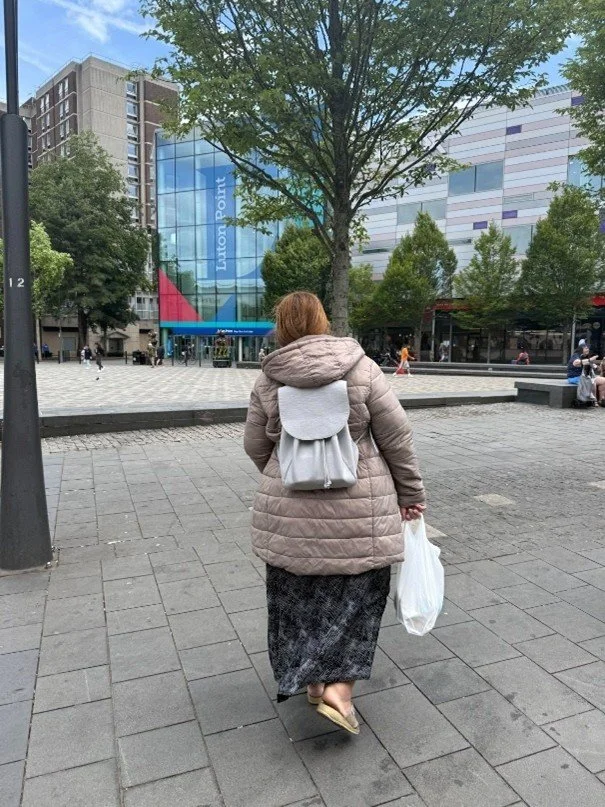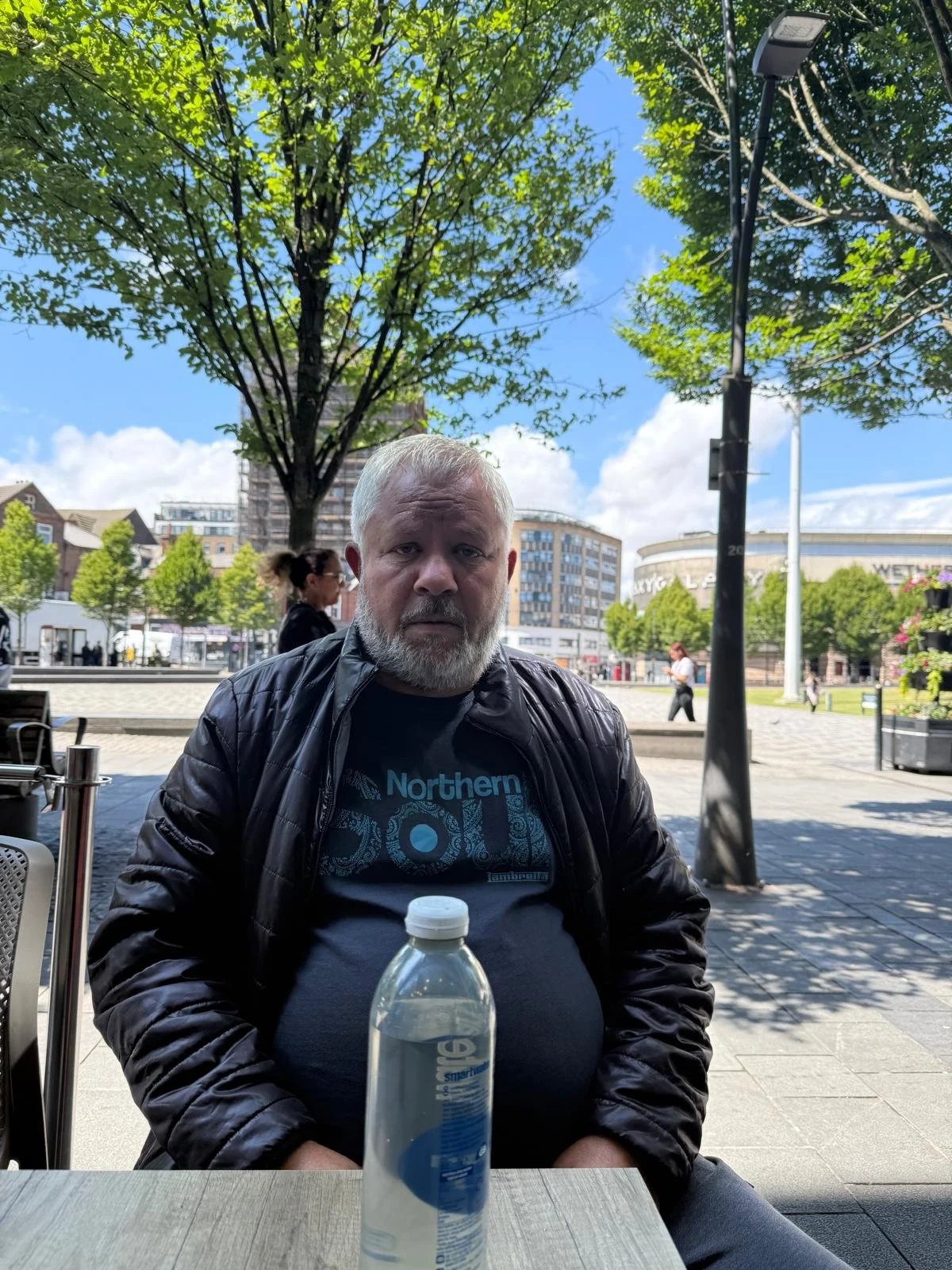‘Never Look Back, Only Forward’: Roma Stories Collected by Vasile Lincan
My name is Vasile Lincan, and I am a co-researcher in the RomaPlaceAge project. I have been part of the team from the very beginning, learning about research and how to collect stories through semi-structured interviews, walking interviews, and photo diaries. I found these different methods work well with Roma people as many are not used to research or may feel unsure about what answers are expected. By using these approaches, we are able to gather their experiences and learn from their stories in ways that feel natural and respectful.
Learning Through Challenges
Taking part has not always been easy. I remember interviewing an elderly woman in her home in Luton, who would occasionally cry out in pain during our conversation because of the aches she suffers as she ages. At that moment, I felt both helpless, because I could not ease her suffering, and thankful for the good health I personally enjoy.
Some of the stories I have heard are deeply personal and painful, and it has not been easy to remain unaffected by the hardships people have faced. Yet, the positives far outweigh the challenges. Through these interviews, I have become more confident and comfortable as a researcher. I have been deeply moved, enriched and inspired by the stories people have shared and by their resilience.
One woman, Banca, told me, “Never look to the past if it was bad. Only look forward and make the future better.” Her words, full of positivity and hope, have stayed with me.
Pride in Community
This project has given me the chance to learn from and reconnect with my Roma community, its traditions, and its strength. I was struck by how much has changed, and yet how much remains the same.
The younger generation is progressing, thinking ‘out of the box’ in new and creative ways, and realising how much there is to learn in a world full of information, diversity, and inspiration. The older generation, meanwhile, is trying to adapt to an era shaped by rapid change and technology. Discrimination and racism against the Roma community still exist, though perhaps to a lesser extent here in the UK. On the whole, however, the positives outweigh the negatives today.
I feel proud and happy to be involved in this work. It allows me to learn both through academic approaches and at a grassroots level, as I stay close to my community and gain knowledge and experience in practice and through direct contact. I am also grateful that the research team has always made me feel my work is valued.
I also bring my own skills and passions to the project. I am multilingual (fluent in Romanes, Romanian, English, and Spanish). I have been a salesman since childhood and have learnt what it really means to ‘hustle’ in order to support my family. I have also worked with charities in Romania and across the UK. Friends know me as an excellent cook. Above all, I have a big heart and I believe in helping others – especially children; they hold a very special place in my heart. My greatest wish is to use my abilities for the good of the Roma community and wider society.
Key Themes from Roma Voices
Over the past months, I have spoken with many Roma people in Luton. Their stories have taught me about resilience, community, and the challenges Roma people face today. A few themes stood out:
Family, Social Life, and Mental Health
Women often carry great responsibilities, putting aside their own dreams for the sake of family and community. Loneliness and isolation are common. Many fear speaking openly, even within their own community. Some participants told me they are well-connected socially. Yet, they would never share their deepest worries, especially around mental health, which is still a taboo topic. This is probably something our project should consider.
Physical Health and Wellbeing
Health is often neglected partly because of language barriers, limited information and education, and negative past experiences with healthcare services.
But it also relates to cultural beliefs. Among Roma, spending time on self-care, such as exercise or mental health, can be seen as ‘selfish’ and unnecessary. Instead, people feel they should devote their time and energy caring for members of their family. Interestingly, many older Roma also refuse to go to the doctor only because they prefer not to hear bad news – ‘burying their heads in the sand’.
Education and Employment
Education remains unequal. Many older Roma, especially women, grew up without going to school. At the same time, I have met Roma men who achieved university degrees but still struggle to find good jobs because of discrimination.
Children often help their parents with work instead of focusing on education, while both men and women take on any kind of paid work, which usually involves hard physical labour, to support their families.
Meet My People
Banca is a single mom who lost her husband when she was 30 years old. She lives in Luton and looks after her children and her niece.
Banca always has a smile on her face, regardless of the many hardships she has had in her life.
Banca is 43 and her life motto is:
“Never look to the past if it was bad. Only look forward and make the future better.”
Iordanica is a religious woman and struggles with several health problems. She relies on support from family and friends.
Iordnaica is in her 50s and came in the UK more than 10 years go. She spoke with so much love about her children, her husband and her church.
Tudorel is in his 60s. His life story has really moved me on a personal level.
He has worked very hard all his life and has sacrificed all for his children.
Back in Romania, Tudorel used to run a fruit and vegetable shop. Due to the rise of large supermarket chains, however, his business could not compete and he had to close down.
After that, he worked various jobs which were physically intensive, and as a result, his health is now compromised. He is respected for his fairness and for his belief that “If you respect, you are respected.”
Final Thoughts
Each story has left a mark on me. I have felt happiness, sadness, and pride – sometimes all at the same time during one conversation with my interviewees. Most of all, I feel grateful to the people who shared not only their innermost precious life stories and experiences but also their meals with me. I am also grateful to the project for giving me this opportunity.








